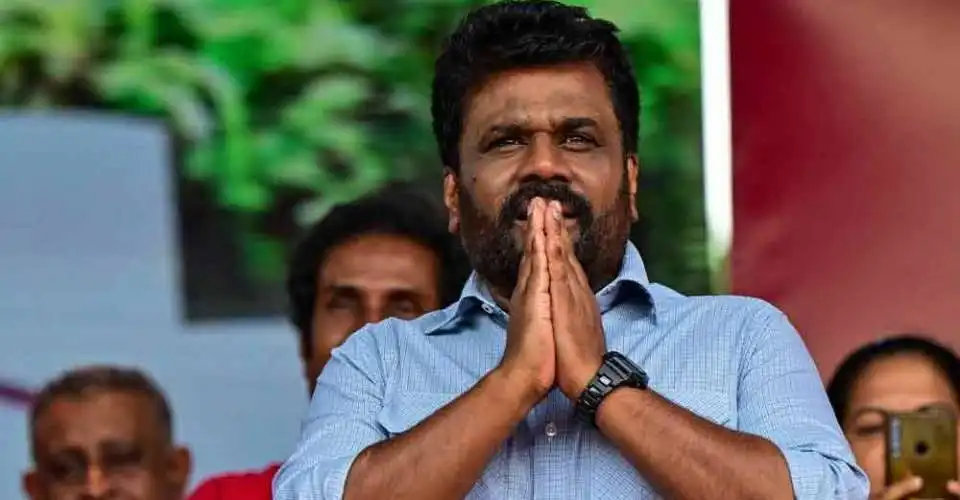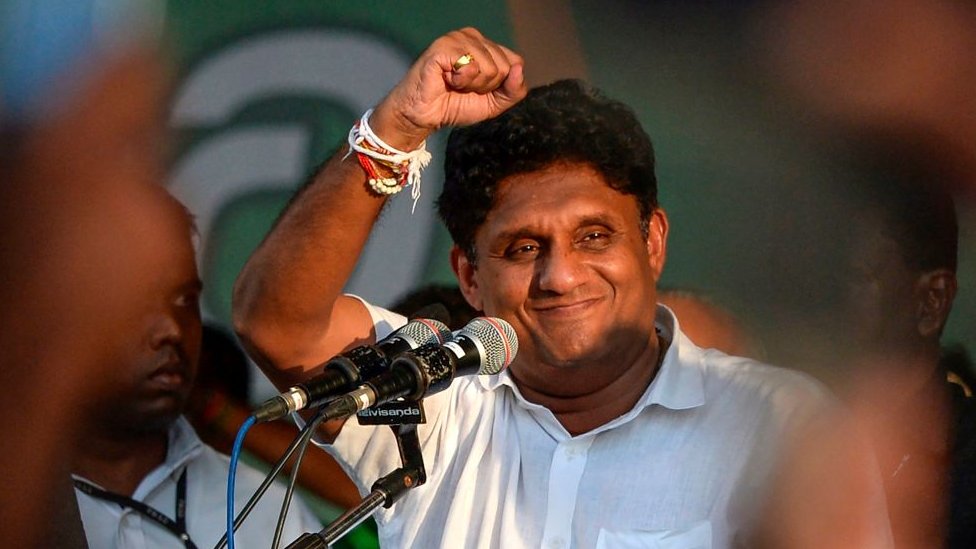The “Dinana Dakuna” (Winning South) collective, aiming to reinstate right-wing politics, held a press conference yesterday (May 22nd) and asserted that the current government, led by the President, has failed to enhance state capacity through public service efficiency and restructure loss-making state institutions/enterprises. They emphasized the nation’s escalating debt crisis.
The press briefing saw the participation of figures including Attorney-at-Law Sudarshana Gunawardena, Attorney-at-Law Dr. Priyankara Mahagamage, Ravi Kumudesh, and Maheel Bandara. Sudarshana Gunawardena shared his views on the reform of state-owned enterprises in the power and energy sectors under the theme “Anura Who Doesn’t Learn,” highlighting the continuous losses of public enterprises and their detrimental impact on the national economy, which peaked in 2022.
Gunawardena pointed out that the Ceylon Petroleum Corporation (CPC) and the Ceylon Electricity Board (CEB) had the most adverse effects on the economy due to persistent losses. He identified two primary reasons for these ongoing losses: the continuous failure to price their products and poor financial management properly.
The simultaneous weakening of the Sri Lankan Rupee against the US Dollar (from 200 to 365) and the rapid increase in global energy prices significantly inflated the cost of fuel imports. However, retail prices for electricity and petroleum did not reflect these rising costs, exacerbating the financial woes of the CEB and CPC, leading to power cuts and fuel queues.
The government’s initial key reform for loss-making state enterprises was the introduction of a cost-reflective pricing mechanism, known as the “price formula,” for fuel and electricity retail. While a price formula for petroleum products was first implemented in 2018 but abandoned in 2019, it was reintroduced in May 2022. Similarly, electricity tariffs were increased based on cost in August 2022 and February 2023, marking the first such increase in the power sector since 2013.
The delay in implementing cost-based pricing resulted in massive losses for the CEB (Rs. 262 billion) and the CPC (Rs. 615 billion) in 2022. These losses necessitated significant fund allocations from the Treasury to bail out these entities.
The collective acknowledged the necessity of a cost-based pricing formula for energy in a country like Sri Lanka, which imports energy and is vulnerable to fluctuations in global energy prices and the exchange rate. However, they also recognized the challenge such a formula poses to consumers, especially the poor and vulnerable, given the prevailing trend of rising global energy prices and the weakening rupee. This had previously led to questions about the government’s role if prices were simply dictated by global market forces.
Past governments had addressed this by subsidizing public utilities like electricity and fuel, selling them below market prices as a welfare measure, with the Treasury covering the losses. However, the 2022 economic crisis made this unsustainable. Instead, the government opted to maintain cost-based pricing at the retail level while providing cash allowances under the “Aswesuma” program to identified low-income groups to mitigate the impact. This approach ensures that all consumers pay the actual cost of energy, discouraging inefficient usage by wealthier segments of society, while supporting the vulnerable.
The press conference further highlighted that implementing cost-based pricing alone was insufficient to resolve the financial distress of the CEB and CPC. The CPC, for instance, faces a significant challenge due to importing fuel with US dollars and selling it in the local market for Rupees. This currency mismatch leads to substantial losses whenever the Rupee depreciates against the Dollar.
To address this, the government transferred the foreign currency-denominated debt of the CPC, and to a lesser extent the CEB, onto the government’s balance sheet. This debt relief is part of a broader exercise to restructure the balance sheets of financially significant state-owned enterprises, including the CPC, CEB, Road Development Authority, and Sri Lankan Airlines.
The government also addressed the issue of “cross guarantees” between state-owned enterprises. For example, the CEB and Sri Lankan Airlines owe substantial amounts to the CPC for fuel, with delays in payments forcing the CPC to borrow from state banks at high interest rates. The previous cabinet had approved measures to eliminate these cross-guarantees.
This balance sheet restructuring is expected to significantly improve the financial health of these key state-owned enterprises while minimizing risks to the financial and banking sectors. However, the collective emphasized the crucial need for long-term solutions to prevent such mismatches from recurring.
With the stabilization of the CEB and CPC’s financial positions, the next imperative is to enhance their efficiency and competitiveness through increased market competition. Steps have already been taken to introduce competition in the petroleum retail market, with Sinopec commencing commercial operations as the first new entrant, followed by RM Parks-Shell. While United Petroleum Australia also entered the market, it later withdrew.
Increased competition in the petroleum retail sector will compel the CPC to streamline operations, reduce costs, and operate more efficiently to remain competitive, ultimately benefiting consumers with better prices and services. Globally, petroleum retail is a competitive business with multiple players, and governments have largely stepped back from direct involvement.
Simultaneously, the previous government initiated the “unbundling” of the CEB’s operations, with the Asian Development Bank playing a significant role. This aims to foster competition within the institution, leading to improved operational efficiency and financial autonomy in power generation and distribution.
The introduction of Bulk Supply Transaction Accounts (BSTA) is expected to enhance transparency, leading to better prices and outcomes for consumers. Automation of meter readings, replacing the current manual system, is another example that can provide timely and predictable meter readings, benefiting consumers and improving the productivity of the CEB’s workforce.





